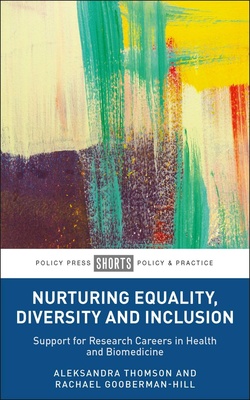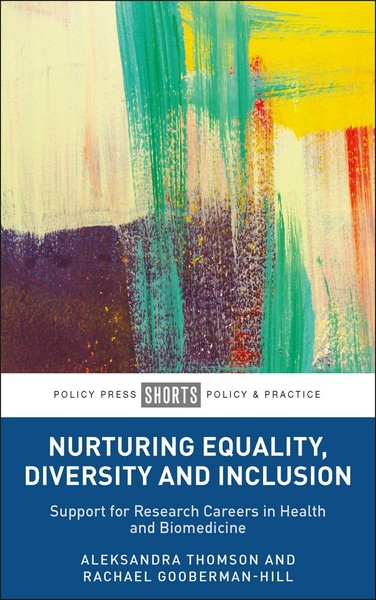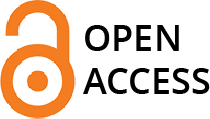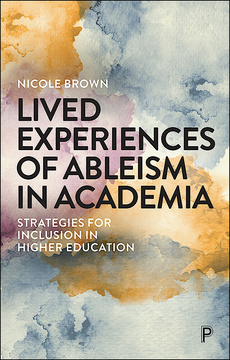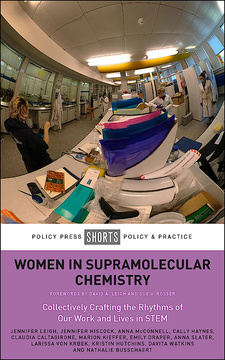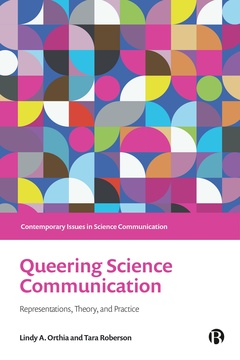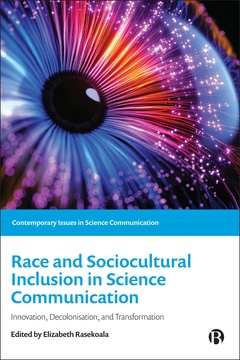Nurturing Equality, Diversity and Inclusion
Support for Research Careers in Health and Biomedicine
By Aleksandra Thomson and Rachael Gooberman-Hill
Published
Jan 19, 2024Page count
144 pagesISBN
978-1447367994Dimensions
203 x 127 mmImprint
Policy PressPublished
Jan 19, 2024Page count
144 pagesISBN
978-1447368014Dimensions
203 x 127 mmImprint
Policy PressEPDF and EPUB available Open Access under CC-BY-NC-ND licence.
Today’s academic and research institutions recognise the importance of diverse research teams in health and biomedical science, in terms of the business case, social justice and the common good.
This ‘go-to’ book familiarises readers with the key equality, diversity and inclusion (EDI) issues in relation to research careers and researcher development. Bringing together the challenges and solutions to EDI matters with an evidence-based approach in one volume, the book offers practical strategies and interventions for academic and research settings.
This is an essential guide for equality planning team members, researchers, HRM officers and managers across academia and research.
“This is a much-needed book that probes into the aspects of inequality in our society with evidence-based facts. It should be read by all healthcare professionals, as well as the public.” Parveen Kumar, Queen Mary University of London
“A timely, conceptually sound reflection on the importance of equality, diversity and inclusion interventions for researchers in the fields of health and biomedicine. A must-read for practitioners, researchers and managers!” Rachel Palmén, Universitat Oberta de Catalunya
Aleksandra Thomson is Lecturer in Business and Management at the Bournemouth University Business School.
Rachael Gooberman-Hill is Professor of Health and Anthropology, and Director of the Elizabeth Blackwell Institute at the University of Bristol.
Introduction: What is equality, diversity and inclusion?
1. The Status quo in research careers in health and biomedical sciences
2. Why Does EDI Matter to Research Organisations?
3. Why Does EDI Matter to Individual Researchers and Researcher Communities?
4. How Can Organisations Be Supported?
5. How Can Organisations Support Individuals?
Conclusion







